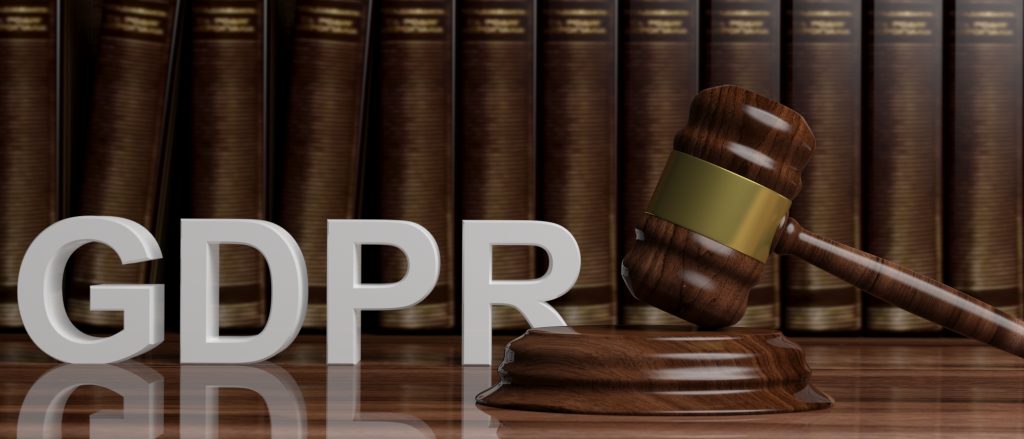The General Data Protection Regulation Compliance is a fundamental legal framework that governs data protection and privacy within the European Union (EU). Despite the UK’s departure from the EU, the GDPR remains a critical regulation for businesses operating within the UK. At Gordon and Thompson Solicitors, we recognize the significance of businesses operating in the UK. It set out strict guidelines for the protection and processing of personal data.
The relationship between the GDPR and the UK Data Protection Act 2018 is crucial to understanding data protection laws in the United Kingdom. The relationship between the GDPR and the UK Data Protection Act (DPA) is closely intertwined. It is a regulation that sets out data protection standards and requirements at the European Union (EU) level. The UK DPA, on the other hand, is the domestic legislation that incorporates the GDPR into UK law. It supplements the GDPR by providing additional details and provisions specific to the UK context. The UK DPA acts as a complementary framework to the GDPR, aligning UK data protection laws with the EU’s legal framework. It addresses areas where the GDPR allows member states to exercise flexibility in certain provisions. The UK DPA also grants powers and responsibilities to the UK’s Information Commissioner’s Office (ICO) for enforcing data protection laws within the UK. Together, the GDPR and the UK DPA form the legal framework that governs data protection and privacy in the UK, ensuring consistency with EU standards while accounting for UK-specific considerations.
The Data Protection Act 2018 aligns with Its fundamental principles, such as lawfulness, fairness, and transparency; purpose limitation; data minimization; accuracy; storage limitation; and integrity and confidentiality. The Act provides specific provisions that implement and interpret these principles within the UK context.
The UK has the ability to amend and supplement its data protection laws independently, although it is committed to maintaining an adequate level of data protection similar to that of the GDPR. Any future changes to the GDPR in the EU will not automatically apply in the UK, as the UK has sovereignty over its data protection laws. The UK implemented its own data protection legislation called the UK GDPR, which closely mirrors the EU GDPR. UK businesses are still required to comply with the UK GDPR for data processing activities within the UK. Regarding data transfers, the EU has not yet granted the UK an adequacy decision, so UK businesses must rely on alternative mechanisms, such as Standard Contractual Clauses (SCCs), to transfer personal data from the EU to the UK. Additionally, UK businesses operating in the EU may need to appoint a representative within the EU and interact with both the UK’s Information Commissioner’s Office (ICO) and EU supervisory authorities. Staying updated on data protection developments and seeking legal advice is crucial for UK businesses to ensure ongoing General Data Protection Regulation Compliance in the post-Brexit landscape.
At Gordon and Thompson Solicitors, we are dedicated to assisting businesses in achieving GDPR compliance in the UK. By understanding the key principles, fulfilling roles and responsibilities, implementing compliance measures, and seeking legal guidance when needed, your organization can navigate the complexities of GDPR and ensure the protection of personal data. Remember, It is an ongoing commitment, and staying informed about updates and seeking professional advice is essential.
Related Posts
- 60
Data protection has become increasingly important in the digital age, with the UK implementing robust regulations to safeguard individuals' personal information. In this blog, we delve into the legal landscape in the UK, focusing on the rights individuals have over their data and the obligations businesses must fulfill to ensure…
- 42DATA PROTECTION Solicitors in Bromley DATA PROTECTION Solicitor UK In the digital age, the protection of personal data has become increasingly crucial. Gordon and Thompson Data Protection Solicitors in Bromley, UK understand the importance of privacy and offer expert legal services to help individuals and businesses navigate the complex…
- 39
In the digital era, e-commerce businesses face unique Legal Considerations in the UK when it comes to online sales and consumer protection. Ensuring compliance with relevant laws and regulations is vital for maintaining a successful and legally sound e-commerce operation. In this blog post, brought to you by Gordon and…
- 34
Legal considerations for start-ups in the UK are essential to ensure compliance with relevant laws and protect the business. Here are some key legal areas to consider: Business Structure: Choose an appropriate legal structure for your start-up, such as a sole trader, partnership, limited liability partnership (LLP), or limited company.…







